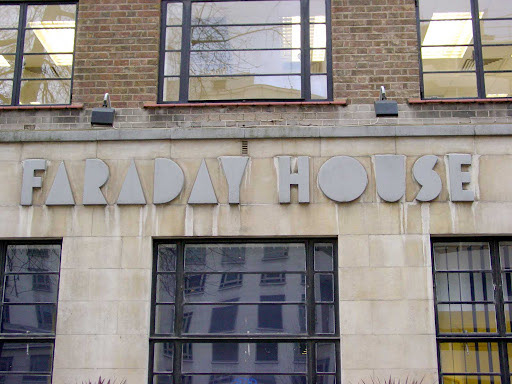Click here to view my essay about Constitutional Rights and Equal Justice under the Law!
Upon taking Law and Liberal Arts 201 first semester of freshman year, we were given about 4 essays to complete sporadically throughout the year. Although I would love to display all four essays, I have decided to narrow it down to my favorite one. This prompt asked us to analyze the idea of whether or not the American judiciary protects our Constitutional rights and provides equal justice under the law. Make sure to check out my essay!
When analyzing the idea of whether or not the American judiciary protects our constitutional rights and provides equal justice under the law, it can be seen that there are several reasons to support this statement and show that this is true. As stated within the paragraph provided, there is a large amount of controversy surrounding the topic of effectiveness and equality within the government being displayed toward the people. The American judiciary can be seen and proven to protect our constitutional rights and provide equal justice under the law due to the fact that judges rule purely on the basis of facts and reasoning of a case instead of showing bias or including personal thoughts, our individual rights are exercised through having and being a democracy and lastly, the fact that there are several courts and forms of government that a person can rely on and go to if they feel their rights were not protected or if a ruling was wrongly put in place. There are several theories, readings and court cases that can be used in support of these arguments such as the Federalist papers and articles written by Kagan and Rosenberg. Overall, there are several reasons to support the idea that the American judiciary does in fact protect our constitutional rights and provide equal justice under the law.
As briefly stated above, the first reason in which the American judiciary can be seen as protective of our constitutional rights and providing of equal justice under the law is due to the fact that when making decisions in court, judges exercise equality among all people by ruling purely on the basis of facts and reasoning of case, excluding all personal thoughts that may weigh the decision. When looking at the paragraph provided, it can be seen that it argues on the basis of the idea that the courts are not in favor of any specific interest or party, and that judges only focus on the law, facts and precedents relevant to a particular case. This statement can be supported through many articles such as the Federalist Papers. More specifically, Federalist Paper 78, written by Alexander Hamilton, is used to discuss the importance of judicial review in which the federal courts have the ability to determine whether acts of Congress are constitutional and to follow the Constitution when there is inconsistency. As stated in Federalist Paper 78, “The legislature not only commands the purse, but prescribes the rules by which the duties and rights of every citizen are to be regulated” (Hamilton, 2008). This statement taken from the Federalist Paper is important when discussing equality and protection within the legal system because it shows that the main emphasis of judges within the court is to make sure that the rights of the citizens are being exercised and followed. Additionally, this Federalist Paper also discusses the idea that in order to avoid arbitrary discretion in the courts, judges should be bound down by strict rules and precedents, which serve to define and point out their duty in every particular case that comes before them. This statement shows that judges do not rule on the basis of personal ideas or lose interpretation but by using rules and precedents. The main ideas and arguments included within Federalist Paper 78 can be used to support the idea the American judiciary does provide equal justice under the law in the sense that judges are ordered to rule on the basis of rulings and precedents within a given case.
Moreover, it can be argued that the American judiciary protects our constitutional rights and provides equal justice under the law due to the fact that we live in a democracy and have control to be apart of the decision making process with the government therefore allowing us to exercise and utilize the rights we have as people. Within the paragraph provided to us, it can be argued that although the litigation process is timely and expensive, is is ultimately worth it in the sense that the court takes their time to review each case properly and our individual rights are protected through democracy. When arguing about how the lengthy and particular process used to make decisions it is important to consider and reference Federalist Paper 81, written by Alexander Hamilton. This Federalist Paper is used to discuss the separation of judicial authority among the different types of courts and the importance of having a distinct federal court system independent of the legislature. This supports the idea that the American judiciary protects our rights and promotes equality by having a separation of judicial authority and although this may cause lengthiness in decision making, it allows the reasoning and decision to be deeply evaluated in hopes of reaching the most appropriate outcome in regards to the situation. Additionally, this process allows the decision to be to be evaluated in every aspect, due to the fact that each level or branch of court has a different function in regards to making the decision. As stated in Federalist Paper 81, “The authority of the proposed Supreme Court of the United States, which is to be a separate and independent body, will be superior to that of the legislature. The power of construing the laws according to the spirit of the Constitution, will enable that court to mold them into whatever shape it may think proper; especially as its decisions will not be in any manner subject to the revision or correction of the legislative body.” (Hamilton, 2008). This statement highlights the idea that the different levels/branches of government allow for a more precise and thorough decision making process due to the fact that each branch has power over the other and the case must pass through each branch before reaching the final decision. Overall, Federalist Paper 81 can be used in support of the idea that the American judiciary prioritizes equality among its people due to the fact that the decision making process is thorough and effective within the branches of government.
The last reason in which the American judiciary can be seen as supportive to our right to equality is due to the fact that there are several courts a person can rely on to solve their disputes if they feel as if their right to equality was not being exercised. The paragraph given to us argues the fact that everyone has the right to bring their disputes to a judge and if for some reason a person feels as if they weren’t treated fairly, they can always take their dispute to another court for a re-evaluation. This idea can be seen and supported throughout Robert Kagan’s book, “Adversarial Legalism: The American Way of Law”, where he discusses the ways in which adversarial legalism distinguishes the process of law in the United States from the law of other developed countries through the examples of policymaking and other governmental regulations. As stated within the novel, “It is helpful to think of adversarial legalism as encompassing both a method of policy implementation and dispute resolution and the day-to-day practice of adversarial legal contestation, depending on the motivations and resources of potential disputants” (Kagan, 13). Additionally, this novel discusses the fact that the U.S. government is inclined to authorize and encourage the use of adversarial litigation to implement public policies and resolve disputes. These statements about adversarial litigation can be used to highlight and show the decentralization of government that is represented throughout America, meaning that the government relies on the power and authority of other governments to make decisions. The decentralization of power represented and shown throughout the article can be used to support the idea that the judiciary provides equal justice in the sense that there are multiple courts that people can access in order to solve their disputes. So, the decentralization and reliance of other governments is another reason in which the American judiciary can be seen as exercising equal rights toward the people.
Although there are several reasons as to why it can be seen that the American judiciary is considered to promote equality and protect our rights, there is also reasoning to support the idea that the government is bias. This idea can be further elaborated and shown within Gerald Rosenberg’s journal article, ‘Tilting at Windmills’. This article discusses the ruling and implementation of the courts decisions regarding Brown v Board of Education and the idea that this ruling was too “court-centered” wich may neglect fundamental changes in the political, social and economic context (Rosenberg 2006, 10). Although it can be argued that the courts do not promote equality due to the fact that they did not judge Brown v. Board of Education on the basis of precedent, the courts promote equality in other ways such as the idea of having several different courts to be able to bring issues to. This is relevant within the Brown v. Board of Education case because although the decision for this case was “court-centered” and not based on precedent, there are several different courts that can evaluate the case as well, therefore giving us the ability to exercise our rights.
There are several ways in which the the American judiciary can be seen and proven to protect our constitutional rights that we have as people and provide equal justice under the law. The first way that the judiciary is seen to provide equal justice is because judges rule purely on the basis of facts and reasoning of a case instead of showing bias or including personal thoughts. Secondly, the judiciary protects our constitutional rights and provides equal justice under the law due to the fact that we live in a democracy and have control to be apart of the decision making process with the government therefore allowing us to exercise and utilize the rights we have as people. The last reason the judicial court shows equality is because there are several courts and forms of government that a person can rely on and go to if they feel their rights and needs were not protected or if a ruling was wrongly put in place. There are several papers and readings that can be used to support this theory such as Federalist Papers 78, 81, and the novels written by Kagan and Rosenberg. So, the American judiciary protects our Constitutional rights and provides equal justice under the law.
Works Cited:
Hamilton, Alexander. 2008. The Federalist Papers: No 78. The Judiciary Department. New York, NY: Dutton/Signet
Hamilton, Alexander. 2008. The Federalist Papers: No 81. The Judiciary Continued, and the Distribution of the Judicial Authority. New York, NY: Dutton/Signet
Kagan, Robert A. 2001. Adversarial Legalism: The American Way of Law. Cambridge, Massachusetts, and London, England: Harvard University Press
Rosenberg, Gerald. 2006. Tilting at Windmills: Brown II and the Hopeless Quest to Resolve Deep-Seated Social Conflict through Litigation. University of Chicago Law School









